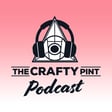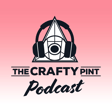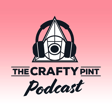
Gillian Letham, Brisbane's Queen of the Suburbs
Gillian Letham only stepped behind the bar of The Mill on Constance to help out her partner and his mate. Eleven years later, while that venue – one of those that helped build Brisbane’s beer scene – is long closed, she now oversees three venues around the city.
They’re all found in Brisbane’s ‘burbs – The Oxford Tap House in Bulimba, The Woods in Mitchellton, Clover in Holland Park – leading our feature writer Mick Wüst to tag her the Queen of the Suburbs.
Just weeks after she opened Clover, she joined Mick and Craig Williams at The Woods for a chat about her unplanned move into craft beer bar operator, her role in helping to create and build Brewsvegas, and much more, including insights into the unique challenges that come with running suburban venues.
Links relevant to or referenced in the show:
Details of the ATO’s proposed changes: https://craftypint.com/news/3582/submissions-open-on-atos-excise-draft
IBA launches Economic Data Needs Analysis: https://independentbrewers.org.au/2024/09/23/iba-launches-economic-data-needs-analysis/
Phenomenal Phat To Phire Up Hillarys Boat Harbour: https://craftypint.com/news/3580/phenomenal-phat-to-phire-up-hillarys-boat-harbour
Gillian Letham's entry in our end of 2010s Advent Calendar: https://craftypint.com/news/2250/craftys-advent-calendar-gillian-letham


